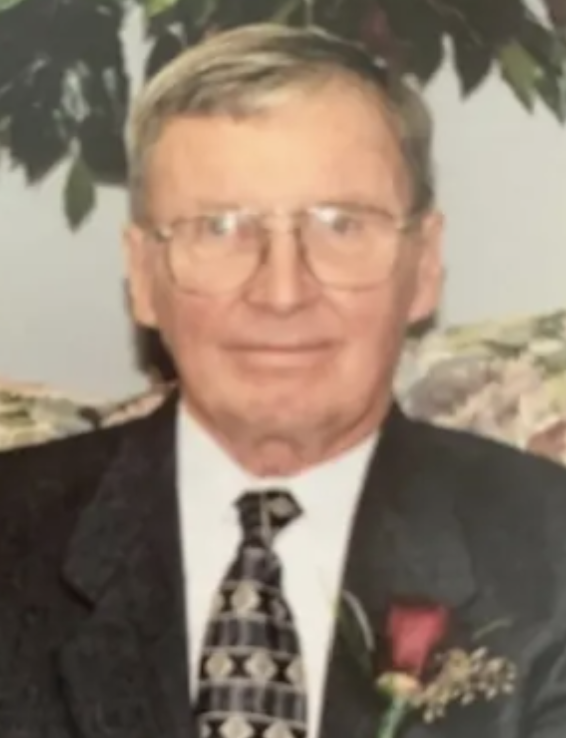
Robert G. Walters
December 14, 1927 -June 2, 2025
As a young husband and father, Bob Walters purchased a farm near Kintnersville, PA but after several years was asked to become the pastor of Steel City Mennonite Church (Bethlehem, PA) and later served as interim of Line Lexington (PA) Mennonite (both were Franconia Conference congregations at the time). Walters felt called to plant a new church and founded Whitehall (PA) Mennonite in 1988. A Celebration of Life was held on June 11, 2025, at Steel City Mennonite. Read more from Walters’ obituary.
Bob Walters, who was raised in the Methodist tradition and became Mennonite through relationships, saying “if there was any reason that we became Mennonites, it’s because we felt loved.” He served as Conference Moderator beginning in 1982 (drawn from Franconia Conference News article by Luke Martin, Jan. 1982, courtesy of the Mennonite Heritage Center). The article stated, “I believe Bob is God’s gift to us for the 1980s.”
Whitehall Mennonite began because of the vision God gave to Bob Walters. When he was out sailing, he felt called to plant a Mennonite church in the Lehigh Valley. Walters’ unrelenting passion and endless love helped create a place for those who were weary from life, giving them a place to belong and to hear the good news of the gospel. Despite support from other Franconia Conference churches, forming this new fellowship was a challenge and several times they almost gave up. They met in a variety of locations until they finally found their home at 4138 Wilson Street in Whitehall (from the Whitehall Mennonite church website)
Sharing more about the challenges of those early years, Joel Horst Nofziger, Director of the Mennonite Heritage Center (Harleysville, PA) shared the following during a sermon at Whitehall Mennonite in October 2024:
When Whitehall Mennonite was to be opened, a poster was distributed in the community that proclaimed the congregation “a place of new beginnings.” I want to take a moment here to reflect on one of the beginnings of this congregation. In 1989, church planter and pastor Bob Walters had a vision for Lehigh County while on his sailboat in the Bahamas. There, outside of Nassau, Bob was dreaming of Whitehall. This grew into the desire to start a church, urged on by the story of the lepers found in II Kings 7.
Jerusalem was under siege by the armies of Samaria. But the Lord delivers the people and scatters the army. Salvation was discovered by four lepers who sat at the entrance to the gate. They entered the camps and discovered the attackers had fled. It was these people on the margins who brought news of salvation to the people. Bob and his wife Emily felt that now was the time to move and, like the lepers, begin a new testimony to God’s salvation.
In conversation with friends, a vision began to emerge: “Whitehall: a member of the master’s family,” reads the early vision. The road was not easy. Early minutes of the church planting committee are somber and often downcast.
In the notes of June 12, 1991, two days before the conference recommended closing the congregation, the situation is clearly stated: “Options do not abound.” Nevertheless, the minutes continue, with the next month reporting forty-five attendees, twenty-three more than average.
Here we stand, thirty-five years later. Options may not abound, but the grace and power of the Lord surely does. Truly, it is a community that transcends boundaries of nationality, race, class, gender, and language. Taking the opportunity to look back to those beginnings, how is Whitehall Mennonite Church called to serve the master today?
We honor the legacy of Walters and his life of faithfulness which has shaped who Mosaic Conference has become today.
Mosaic values two-way communication and encourages our constituents to respond with feedback, questions, or encouragement. To share your thoughts or send a message to the author(s), contact us at communication@mosaicmennonites.org.
The opinions expressed in articles posted on Mosaic’s website are those of the author and may not reflect the official policy of Mosaic Conference. Mosaic is a large conference, crossing ethnicities, geographies, generations, theologies, and politics. Each person can only speak for themselves; no one can represent “the conference.” May God give us the grace to hear what the Spirit is speaking to us through people with whom we disagree and the humility and courage to love one another even when those disagreements can’t be bridged.
